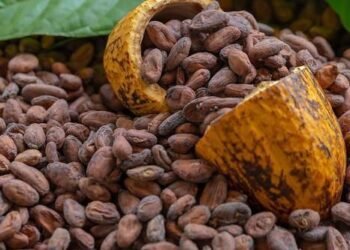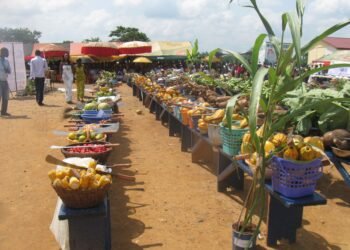Mr. Edward Kareweh, General Secretary of the General Agriculture Workers Union (GAWU), seemed to have found the magic wand for Ghana’s depreciation issues and thus, proposed that prioritizing investments in agriculture is a sure way to manage inflation in the country.
According to the General Secretary of the General Agriculture Workers Union, managing food inflation will have a significant impact on the reduction of national inflation since it has been the major driving force of inflation in the country.
Mr. Kareweh noted that the continuous rise of food inflation is driven by both domestic and external factors, explaining that the external factors included the importation of inflated foods into the country.
“That is to say that if there is inflation in the importing country, they’ll put that inflation on their produce, and we’ll import those products into our country, and we’ll have to increase the price to be able to recover the increase that has occurred in the importing country.”
Mr. Edward Kareweh
The General Secretary of GAWU mentioned that domestic causes were due to the high cost of production, less food produced recently, and the high taxes being paid on goods and tools needed to make the production process flexible for stakeholders in the agricultural sector.
“If you have a country like ours where we import almost everything, it means that when there’s a global dynamic, we’ll suffer it so much. That is the reason why the government says it’s as a result of the Ukraine-Russia war.”
Mr. Edward Kareweh
Prioritization and Investment
The Secretary GAWU noted that the prioritization and investment must be done in a manner in which loopholes through which waste occurred were blocked immediately as the waste in the sector in previous years negatively impacted the activities of farmers.
“In the past, we saw that there was a wastage in the investment in agriculture; the fertilizer that was supplied in large quantities was smuggled out of the country.”
Mr. Edward Kareweh
Mr. Kareweh asserted that the survival of humans to a large extent depend on food, saying that “no person can afford to forgo food no matter their level of income, so food is critical and the government must prioritize the agriculture sector.”
Meanwhile, Ghana’s annual inflation rate edged higher for the third month running to 43.1% in July 2023, up from 42.5% in the prior month and well above the central bank’s target band of 6% to 10%. It was the steepest inflation rate in four months, with the cedi experiencing some volatility during the month, in comparison to the relative stability observed since the beginning of June.
Upward pressure came from both food (55% vs 54.2% in June), and non-food prices (33.8% vs 33.4%). On a monthly basis, consumer prices surged by 3.6% in July, accelerating from 3.2% rise in the prior month.
In Ghana, the most important components in the Consumer Price Index (CPI) are food and non-alcoholic beverages (43 percent of total weight); housing and utilities (10 percent); transport (10 percent) and clothing and footwear (8 percent). The index also includes: education (7 percent); restaurants and accommodations (5 percent); alcoholic beverages, tobacco and narcotics (4 percent); and information and communication (4 percent).
Recreation, sports and culture; furniture, household equipment and maintenance; personal care, social protection and miscellaneous goods and services; health; and insurance and financial services account for the remaining 9 percent of total weight.
Given that the main inflation pressure on the economy is coming from the food category, the proposed solution from GAWU will indeed help lower the surging food prices to sustainable levels. This will alleviate the gruesome and unmanageable cost of living currently bedevilling the country.
READ ALSO: Tullow Oil Finally Agrees to Sell All Interest In Guyana B.V.























